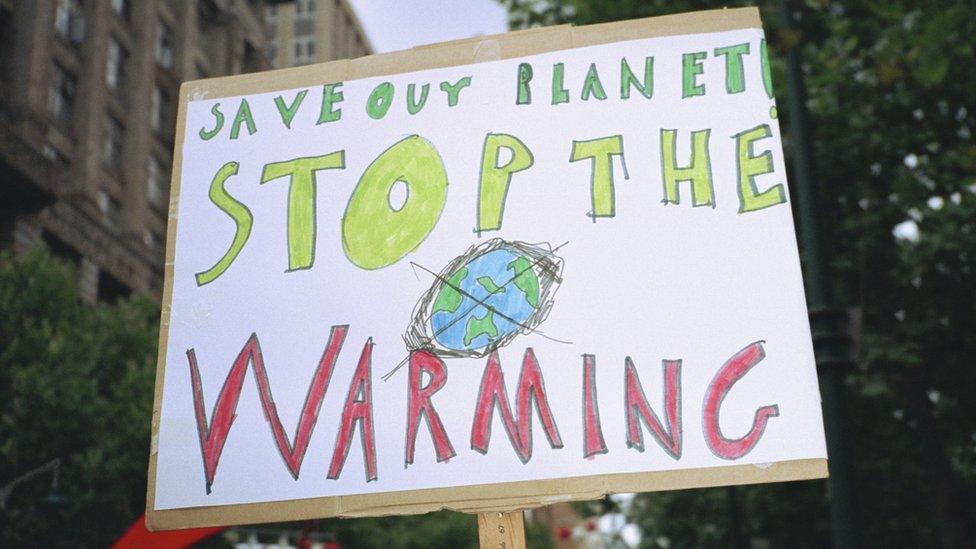Climate change: UK promises to cut emissions by two-thirds in next 10 years
- Published
- comments
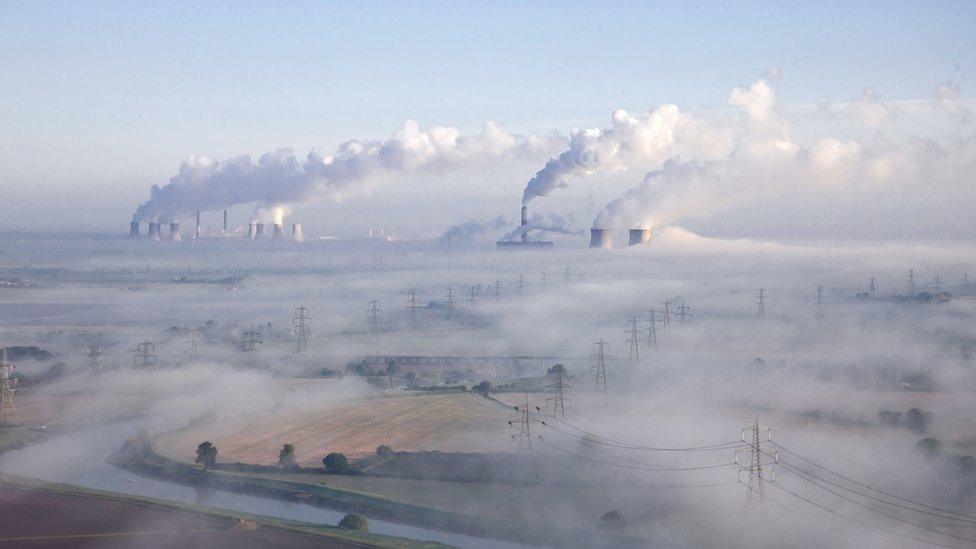
Prime Minister Boris Johnson says the UK will aim to cut its carbon emissions by at least 68% in the next ten years.
"Today, we are taking the lead with an ambitious new target to reduce our emissions by 2030, faster than any major economy," the PM said.
"But this is a global effort, which is why the UK is urging world leaders to bring forward their own ambitious plans to cut emissions and set net zero targets."
The UK is already aiming to bring all greenhouse gas emissions to 'net zero' by 2050.
That means harmful emissions from homes, transport, farming and industry will have to be stopped or - in areas where it's difficult to stop completely - balanced by other measures like planting trees that suck carbon dioxide (CO2) out of the atmosphere.
But not everyone is convinced that a realistic plan is in place to achieve this yet.
'We need action to back it up, right now'
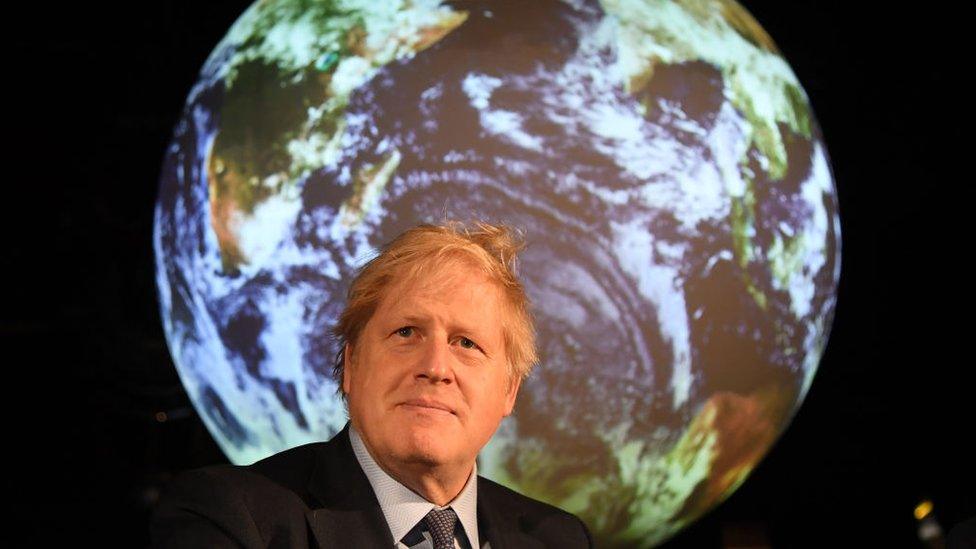
Climate change experts have welcomed the news, but now want the government to put in place the policies to back up their plans and make them happen.
Delayed details of the Government's policies on energy and the reduction of emissions are expected to be published before Christmas.
One of the UK's leading climate scientists, Prof Sir Brian Hoskins, told the BBC: "Mr Johnson's target is ambitious - but we need action to back it up, right now."
He added that the Chancellor Rishi Sunak "clearly hasn't got the message" after recently committing £127bn to the HS2 rail link as well as new roads - which will both increase green house gas emissions.
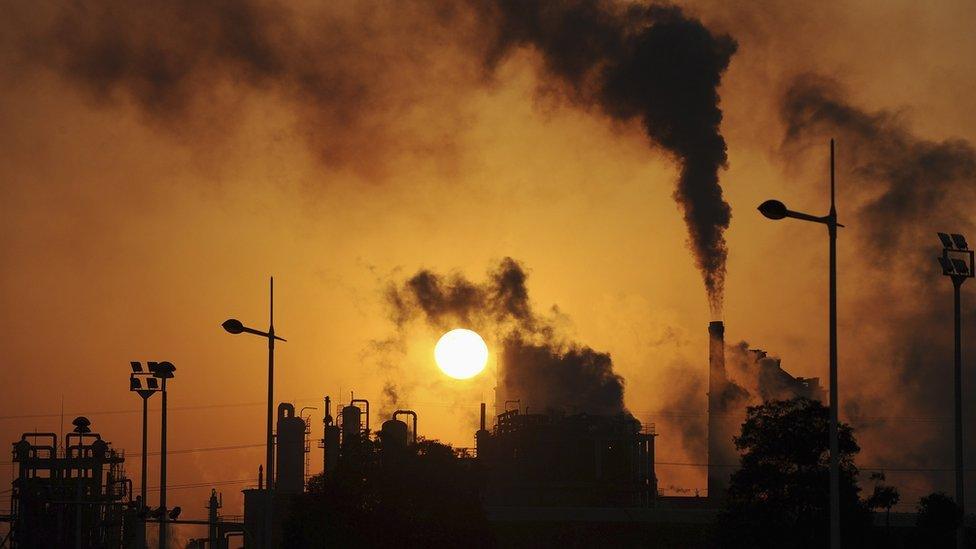
China and US have pointed the finger at each over climate change
Prof Hoskins said: "The actions of the chancellor don't measure up. Every single department has to wear climate change glasses when they think of new policies."
He and other scientists said even if the UK and other nations keep their promises on cutting emissions there was no guarantee the world would avoid serious climate change.
Prof Corinne Le Quéré, from the University of East Anglia (UEA), said if nations matched the UK's lead "it won't be a safe climate - but it will be a safer climate than we'd get based on current levels of ambition."
The UK government has promised "net zero" greenhouse gases by 2050.
That means emissions from homes, transport, farming and industry will have to be avoided completely or - in the most difficult examples - offset by planting trees or sucking CO2 out of the atmosphere.
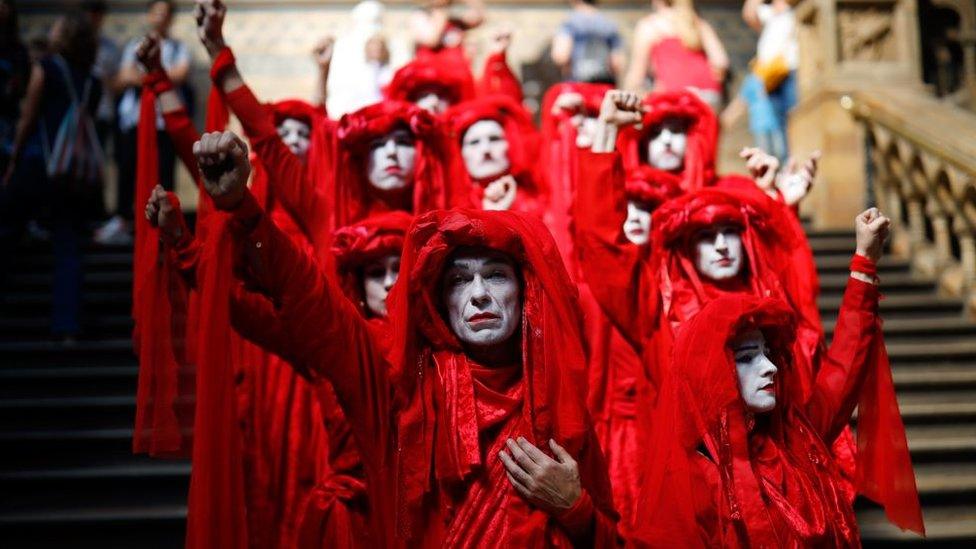
Groups like Extinction Rebellion want the government to go further
The Labour party's shadow business secretary, Ed Miliband isn't convinced the government can achieve its aims in 10 years, saying: "It is clear there is a yawning gap between the government's aspirations and its policies to deliver them.
"Our goal should be to go further and faster."
Some green groups have asked the government to go further by reaching a 75% cut in emissions by 2030.
Other groups such as Extinction Rebellion say the UK should stop emissions almost completely within a few years to be confident of avoiding climate disaster.

Will frequent fliers need to be taxed?
Research by the London School of Economics (LSE) suggests that the UK could afford to be little more ambitious and cut emissions by 72%.
Climate experts say to achieve the UK's targets more homes will need to switch to low-carbon heating.
They also say petrol guzzling SUV vehicles might have to be banned - and people who take lots of flights, known as frequent fliers should get taxed more.
COP26 and the rest of the world
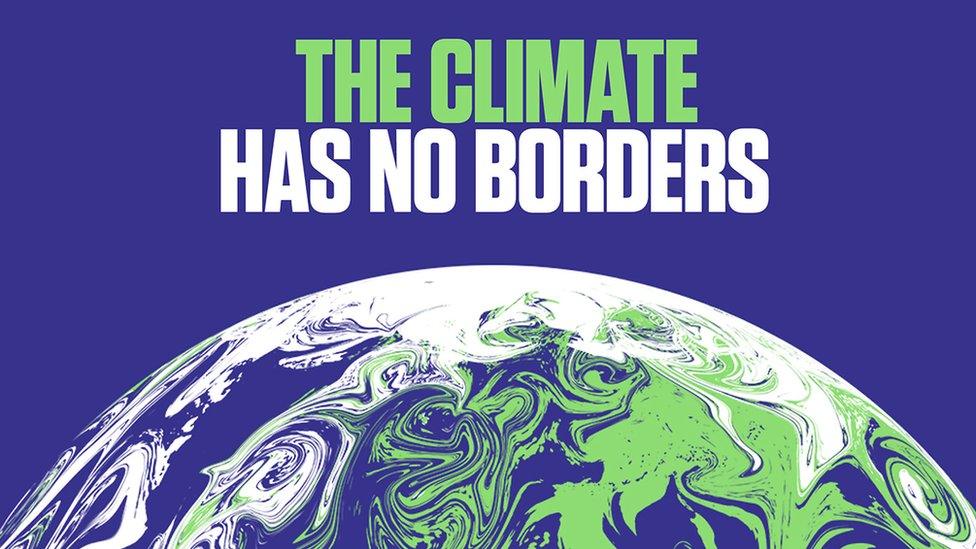
This COP26 campaign poster stresses the fact that countries need to work together to fight climate change
The prime minister's 68% target represents the UK's commitment - under the Paris Agreement - to reduce national emissions and adapt to the impacts of climate change.
The Paris deal, signed in 2016, is aimed at keeping the global temperature rise well under 2C, with a maximum rise no higher than 1.5C.
European Climate Foundation expert Laurence Tubiana came up with details of the Paris Agreement, she says: "International attention now turns to the United States, China and other major economies to take similar steps by COP26."
Mr Johnson will urge other countries to take action when he hosts a virtual meeting with world leaders next week.
The meeting is in place of the annual UN climate talks called COP26 which was scheduled for Glasgow in November but got postponed by a year because of coronavirus.
- Published2 December 2020
